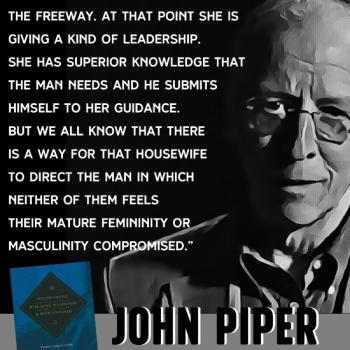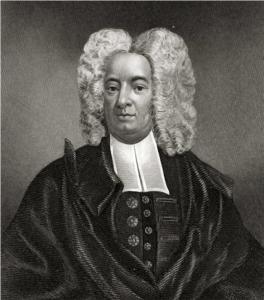• The Department of Public Health here in Philly is far more biblically sound than alleged “Bible-believing fundamentalist” John MacArthur.

• The Vatican is teasing the upcoming release of a new papal encyclical “to focus on the economic, environmental and spiritual change that is necessary to address today’s modern challenges.” The title of Pope Francis’ letter, alas, is said to be “Fratelli Tutti,” meaning “Brothers all.”
As Thomas Reese writes for RNS, “Pope Francis’ new papal encyclical could be derailed by its seemingly sexist title.”
Yep, that title would be “seemingly sexist,” and probably more than “seemingly.”
One of my favorite words is “bomfoggery” — coined, maybe, in the 1960s in mockery of Nelson Rockefeller’s tendency to conclude his campaign speeches with talk of “the brotherhood of man under the fatherhood of God.” (It may be older than Rockefeller, possibly dating back to the wonderfully named great liberal preacher Harry Emerson Fosdick in the 1930s, who used that phrase quite a bit when preaching in a cathedral built by Nelson’s father.)
Bomfoggery clouds a great deal of 20th-century theology, where the language of “brothers all” or the “brotherhood of man” is a recurring motif. It often was not intended to be exclusive language — a reference only to men and males that left its sisters unmentioned and invisible. And so we can usually amend such language to more accurately convey the inclusive, universal meaning intended by the original writers by altering it to something like the “kinship of humanity” or some such. But sometimes this “brotherhood” language was intended to be male-exclusive — implicitly or, sometimes, explicitly. And it’s not always easy to determine from the context whether such invocations of fraternité were intended to bolster or to reject the possibility of égalité.
It may be that we dropped the “bom” due to the increasing realization that such language centered men while erasing women and thereby contradicted the all-encompassing universalism it meant to convey. It may also be that the originally inclusive ideal of “the brotherhood of man” lost its appeal for a lot of men once it became clear that this exclusive fraternity was also going to include women. “Brothers All” might be one of those ideas — like Social Security, labor unions, or popular voting — that enjoyed mass-support back in the 1930s, but which lost that support, becoming a source of resentment once it became expansive enough to benefit anyone beyond its original exclusive bounds.
On a far less important level, the title of Francis’ upcoming encyclical makes my pop-culture-drenched brain think of these lads from Glasgow and of (the cinematic classic from which they took their band’s name).
• Chris Gehrz’s “spiritual biography” of Charles Lindbergh is finished and winging its way into print next year. Now that he’s on this side of all that work, Gehrz revisits his earlier reflections on “The Problems of Writing Biography.”
The first bit of that discussion — the challenge of finding sufficient reliable source material — is specifically about Gehrz’s own particular project. The latter part, about the “problem of empathy and exoneration” — or perhaps empathy versus exoneration, is a thoughtful look at what should be a concern for not just every biographer, but every reader of biography.
That struck close to home for me due to something Gehrz mentioned in that earlier bit about his sources: “Not only could I read the diaries of Lindbergh’s wife Anne … and the memoirs of their daughter Reeve, but the latter Lindbergh was kind enough to answer several questions that helped flesh out my understanding of the Lindbergh home.”
Reeve Lindbergh lives in the Northeast Kingdom of Vermont where she still teaches writing workshops. She’s a good writing teacher. I know this because, in the final years of his life, my father was an enthusiastic student in her workshops. Dad and I talked about those classes and his various works in progress a lot, partly because it was one of the few “safe” topics of conversation left after he joined the church of Fox News, and partly because, I think, he joined those classes in part as an olive branch to his liberal/writer/disappointment son.
I never asked Dad any of the questions I’d have wanted to ask his teacher. Did she think Hauptmann was guilty? And, more urgently and importantly, the subject that I’d want to raise with delicate indirectness by asking “What does she think of Philip Roth?” I didn’t want any of that to distract me from encouraging my father in his newfound pursuit of writing his remembrances and snapshots of his own memoirs. I wanted him to write.
My focus, in other words, was on the very same things that Gehrz discusses: the search for reliable source material, and the challenge of empathy and exoneration.












